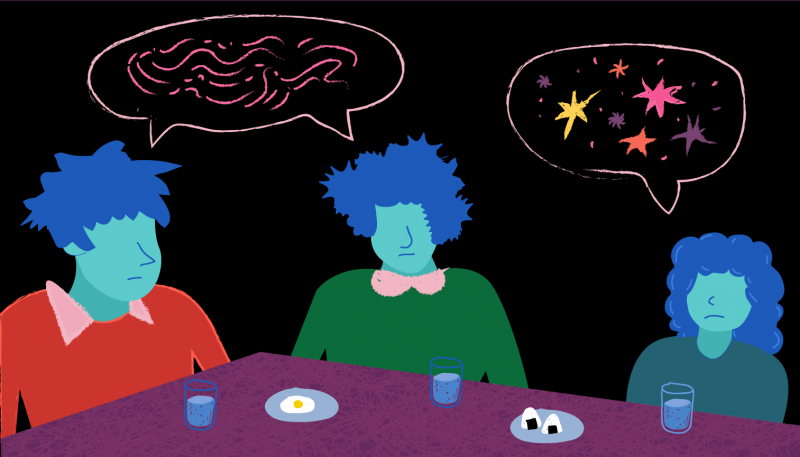In the last few years, I’ve had to come to terms with the fact that my political views are very different from those of some of my closest family members. It’s a realization that slowly crept up on me around the time I became legal voting age. Now, five years later, it’s still a source of contention at the odd family dinner.
My mom’s side of the family comes from a long line of rural Ontarians who bleed blue, while I, on the other hand, have gone out of my way to meet Justin Trudeau on two occasions. I own a t-shirt with a photo of him and the word “Tru-Daddy” on it, just to give you an idea of where my allegiance lies.
This realization of the differences between myself and my relatives has been challenging not only for the obvious reason; we all want the rest of the world to agree with our political ideologies. But also because of the fact that it has actually driven a wedge between some of those relationships.
I have relatives who I once loved spending time with, but I now actively avoid them whenever possible. Our conversations always seem to shift into political mode, and I feel like I might not love them as much anymore if I hear them say “Liberal taxes” one more time.
You grow up thinking that the people – the adults – who are part of the village raising you are good, smart, and kind people. Then all of a sudden your aunts and uncles won’t stop sharing posts by Ontario Strong on Facebook, and your oldest cousins keep complaining about the rise in immigration. The worst part is, when you’re old enough to know and understand the implications of that, and thanks to the DNA you share with them, you’re too stubborn to keep your mouth shut about it.
In all seriousness, it isn’t my family’s conservatism that I take issue with. It’s the lack of empathy demonstrated by their ballot choices. During the 2018 Ontario provincial election campaign, Doug Ford promised cuts if elected (spoiler: he was), to the services that I knew would greatly affect vulnerable people in Ontario; myself and some relatives included.
These promises entailed cuts to the Ontario Health Insurance Plan (OHIP) and to the Ontario Student Assistant Program (OSAP). The OHIP had previously covered almost all prescriptions for people aged 24 and under, and the OSAP gave students a six-month grace period after their graduation before charging interest on their student loans.
In the lead up to that election, I implored many members of my family, who I knew weren’t fond of the provincial Liberals at the time, to consider any option other than Doug Ford. I explained how I thought it would negatively impact the people who need provincial services the most – to no avail.
Those family members would complain about things like their hydro bills and their property taxes under the Liberals. They would say that they wanted to elect Ford because he promised to repeal the sex-ed curriculum which the Liberals updated in 2015 for the first time since 1998 (it included concepts such as LGBTQ rights, online bullying and consent). They thought that it taught things that were too complex for kids to think about, let alone understand. As someone who was taught the 1998 version, I can assure you I would have appreciated the modern information that it lacked.
All of these concerns of theirs are valid issues to consider when electing a new Premier. But to me, they are not nearly as important as things like low-income families getting free prescriptions when their kids get sick, post-graduates getting a moment to catch up before paying back tens of thousands of dollars of debt, and kids growing up in a province they feel accepted by.
My family and I may never agree on which party to vote for, and that’s hard for me to reconcile. All I can do is vote for what I believe in and hope that they begin to see things from a more outwardly compassionate perspective.
Graphic by @sundaeghost




